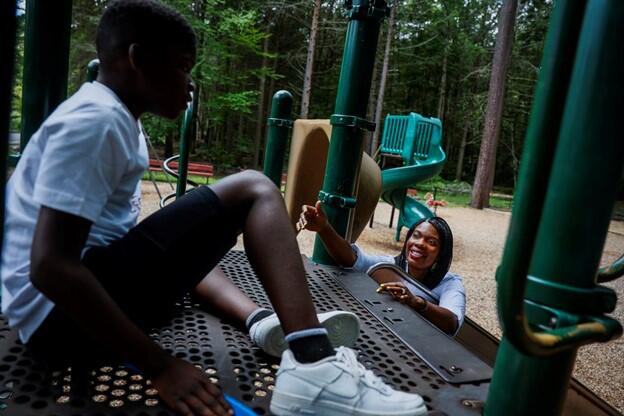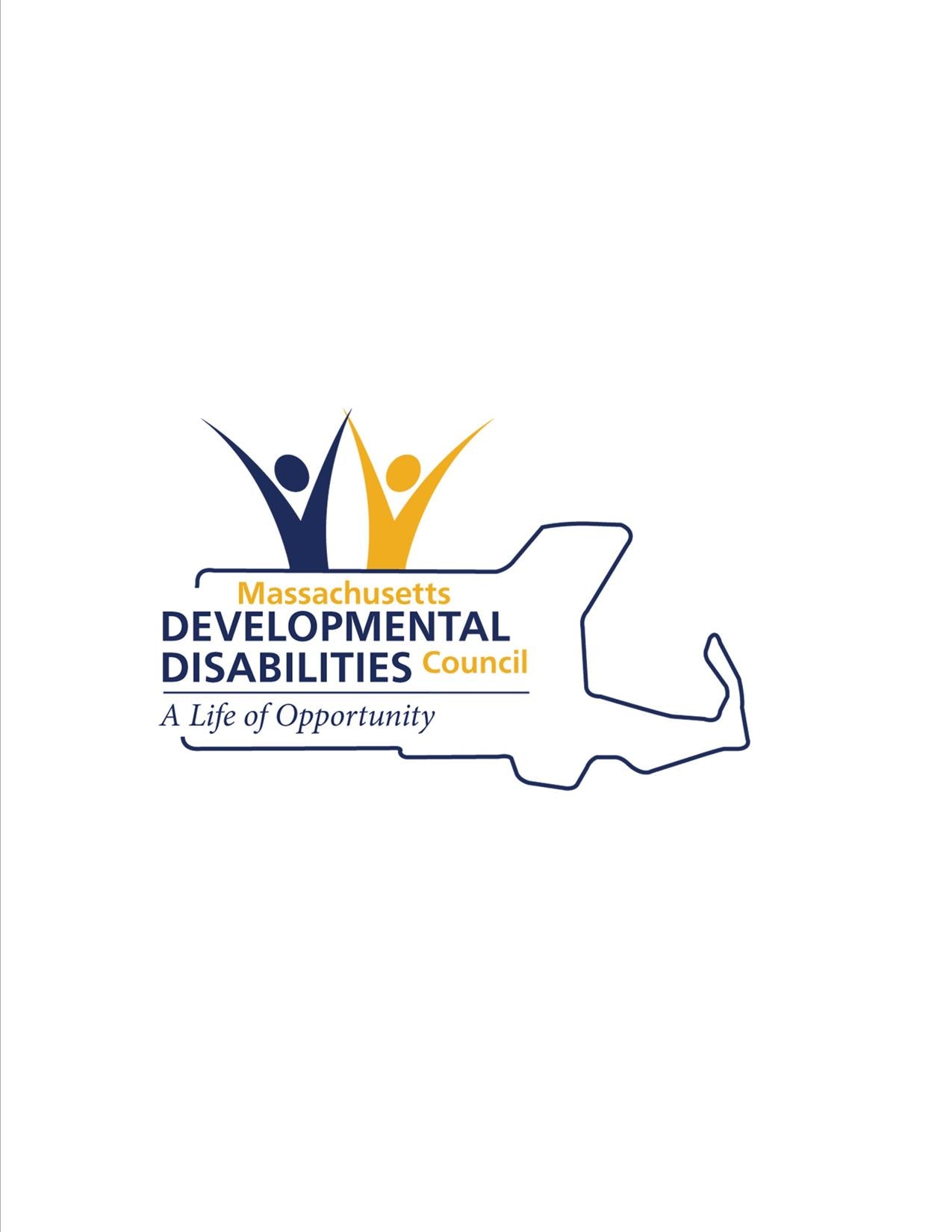- Massachusetts Developmental Disabilities Council

Cynthia Laine tried to encourage her son Luke, 11, to go down the slide while visiting Coggshall Park in Fitchburg.ERIN CLARK/GLOBE STAFF
Children with autism have a higher risk of drowning than neurotypical kids.
By Zeina Mohammed Globe Staff,Updated July 19, 2023, 6:11 a.m.
Yahaira Lopez was devastated last week by the news that 7-year-old Anna Mburu had drowned in the Merrimack River, the second reported local drowning of a child with autism in two months. In May, 4-year-old Mohamed Fofana was found dead on Spectacle Island after becoming separated from a relative on Castle Island.
Lopez, the mother of a son with autism and executive director of Autism Sprinter, a Randolph nonprofit, said she lives in fear of a similar fate befalling her family.
“I cried because, too often, families like us can’t enjoy public places like the beach, especially if you have a child who’s nonverbal,” said Lopez. “Looking away for one second can turn into a tragedy.”
Drowning is a leading cause of death for all children. But children with autism are 160 times more likely to drown than neurotypical kids, according to a 2017 study in the American Journal of Public Health. Nearly one-third of parents whose children are on the spectrum report having a close call with drowning, and more than half said fears of their children wandering or running off prevents them from attending or enjoying activities outside their homes, according to the National Autism Association.
“We can never let our guard down,” said Janeka Melanson, who remembers when her three-year-old daughter Harper, who is autistic, bolted from her in public seven years ago, leaving her the impossible choice of running after her or staying with her other daughter, then an infant whose stroller she had been pushing.
“Those were very scary times, especially in parking lots,” said Melanson, director of HR, diversity, equity and inclusion at the Asperger/Autism Network, a Watertown nonprofit. “There were times I wouldn’t take them both out in public at the same time.”
Children on the autism spectrum are prone to “eloping,” or wandering from caregivers and safe environments. A 2012 study found that 49 percent of families with a child on the spectrum had reported that their kids eloped and, of those that did, more than half “went missing long enough to cause concern.”
Many kids with autism have difficulty understanding and communicating their thoughts and desires, so they may not have functional language to say, “‘I want to do this,’ or ‘I’m going here,’” said Shari Krauss, autism program director at Boston Medical Center. Kids also often lack age-appropriate safety awareness and don’t understand the risks involved in things like touching a hot stove or leaving home without telling a caregiver.
“We also find that a lot of our kids are very sensory motivated and that sources of water can be a huge draw,” Krauss said. “So you pair that interest with a lack of safety awareness, and you can arrive at something as devastating.”
Like Harper, Lopez’s son, whose name she prefers not to give for reasons of privacy, also used to run off and gravitate toward the water. For this reason, she made sure there were no creeks or rivers near her new home when she moved from Dorchester to Randolph.
Constantly needing to watch kids can take an extreme toll on parents’ mental health, many of whom struggle to find additional time to adequately care for themselves or other children they may have, said Raquel Quezada, secretary of the Massachusetts Developmental Disabilities Council and board member of the Disability Law Center, which provides legal advocacy on disability issues.
“We do what we can, but it’s a struggle every day, and there’s not enough reprieve,” she said. “Some days it’s waiting for the whole day for someone else to come and take over just to take a shower.”
As the mother of four Black sons, two of whom are autistic, Cynthia Laine is also concerned about interactions with law enforcement and racial profiling. Her 11-year-old son, Luke, she said, frequently wandered to a neighbor’s house when they first moved to Fitchburg last year. The neighbors called the police multiple times.
While she understands her neighbors’ discomfort, Lainesaid she explained her son’s diagnosis to the family and was shocked to learn that, when they called the police again, they gave a description of a much bigger person and said he was vandalizing, which she said was not true.
“They said he was 6-foot-something and 170 pounds,” said Laine,founder and executive director of the Black Autism Coalition, which supports Black and brown families of children with autism. “My son is an 11-year-old boy, he’s not even 5 feet tall yet.”
She encourages families she works with and those that listen to her weekly Facebook Live in Haitian Creole to register their children with the local police department and work to make them comfortable with law enforcement, given that kids with autism are much more likely to interact with law enforcement during their lifetime. For her, that included introducing her son to police officers, having him sit in a police car, and taking him to the station.
There’s also a need for more adaptive swim lessons for autistic kids in lower-income and diverse communities, said Laine, who plans to work with her local YMCA to bring on instructors qualified to work with children with autism. Geography and cost can often be a barrier to swim education for low-income and marginalized communities.
Tracking devices are a crucial tool that can help parents keep children safe. But many parents aren’t aware of them, and they can be expensive for many, said Asha Abdullahi, founder and executive director of the Somali Parents Advocacy Center For Education, a nonprofit dedicated to empowering Somali parents to better advocate for children with disabilities. While some types of insurance cover trackers, the lengthy process of getting coverage can be difficult to navigate, especially without tailored support, said Abdullahi.
Many parents are unaware that eloping is widespread. They end up blaming themselves if their child wanders off, and for not knowing to ask for help or not feeling comfortable doing so, said Dr. Marilyn Augustyn, a developmental-behavioral pediatrician at Boston Medical Center and director of the division of developmental and behavioral pediatrics at Boston University Chobanian & Avedisian School of Medicine.
“After 30 years, the thing that most surprises me is how many parents feel like they’re the only ones this happens to, and they’re doing a bad job. Neither is true,” she said.
